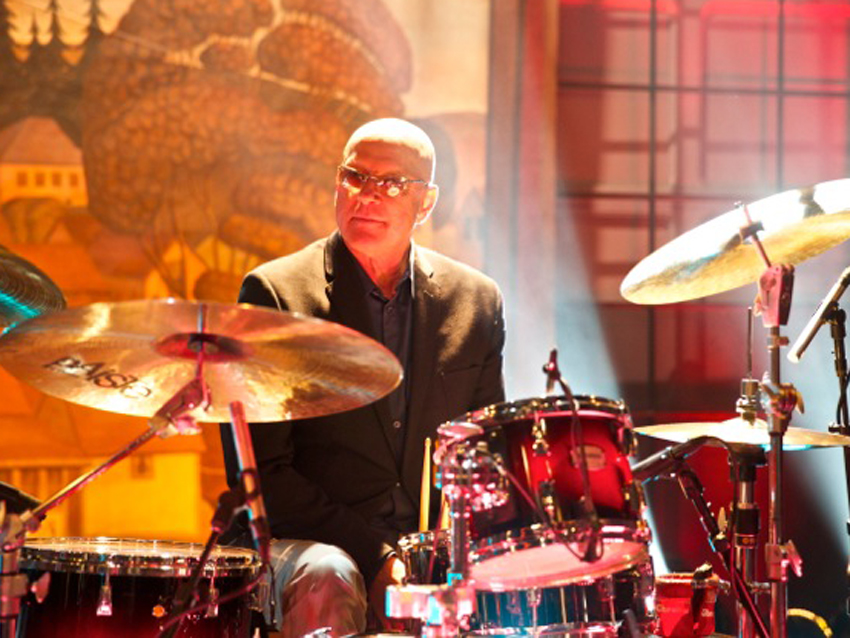
Session legend/producer Russ Kunkel on 13 career-defining records
In 1970, as he was preparing to play on an album by Carole King, a hit ‘60s songwriter who had yet to make a name for herself as a commercial singer of her own compositions, drummer Russ Kunkel did a funny thing: He asked King for a copy of her lyrics.
"Back in those days we didn’t use charts that much,” Kunkel explains. “We played the songs enough that we would memorize them in the studio, but I also wanted to see the lyrics because I wanted to know what the songs were about.”
Kunkel’s simple request, and his subsequent playing on King’s landmark album Tapestry, made quite an impression on the singer-songwriter. The two began an association that would encompass studio recordings and stage work, one that continues to this day. “Carole King was recently quoted as saying that I’m a ‘singer-songwriter’s drummer,’” Kunkel says. "Again, that's her quote, not mine." Describing his approach in the studio, he says, “It’s like I’m able to play in all aspects of the song, not just the groove to enhance the song, but in a way that the composer or the writer feels simpatico with.”
'70s to '80s
Throughout the ‘70s and into the early ‘80s, Kunkel was at the center of a small group of ace players – namely, guitarists Danny Kortchmar and Robert "Waddy" Wachtel, bassist Leland Sklar and keyboardist Craig Doerge – who performed on an astonishing series of soft-rock masterpieces by singer-songwriters such as King, James Taylor, Jackson Browne, Warren Zevon and others. The double-shot of Taylor's Sweet Baby James and King's Tapestry, both released within a year of each other, primed listeners' ears for a more introspective approach to rock. The hits piled up, the studios were hummin', and the musicians were booked round the clock.
“It was an incredible time, but from where I sat, it was like being in the calm in the center of the storm,” Kunkel says. “I had no idea that James Taylor’s success would be as big as it was and that playing on Sweet Baby James would have the long-range effects that it did. I was just happy to be working. And I’m glad that I didn’t know – I think that would only have been a distraction.”
A tight bond
Kunkel enjoyed such a tight bond with his studio mates that he, along with Kortchmar, Sklar and Doerge, formed a band called The Section. The quartet hit the road in the mid-'70s and even cut a couple of albums. Kunkel maintains that the musical dialogue The Section shared on their own helped inform their work for their superstar friends.
"Playing as a group for James or for Linda or for Jackson was different because we played well together as a quartet," he says. "We knew how to stay out of each other’s way and how to enhance each other’s parts. That made it very easy for Jackson to put on the guitars and the piano – the rhythm section was just there, percolating around him. The same for James. We had spent enough time doing it that it just came naturally."
By the mid-'80s, Kunkel expanded into production, helming records for artists such Jimmy Buffett, Dan Fogelberg, Carly Simon and the Derek Trucks Band, among others. He credits Peter Asher, who in the '70s functioned as manager and producer for both James Taylor and Linda Ronstadt, as a major influence. "Having the good fortune to work with Peter Asher meant that I got exposed to lots of different artists," says Kunkel. "Peter is still is a great friend and a very, very smart man, because he really believed that if it’s not broken, don’t fix it. He got a core group of people around him who were his support music people, and he stayed with them. He took them from project to project because he wanted that consistency.
“Although a James Taylor record doesn’t sound anything like a Linda Ronstadt record, the consistency is there. We were the string that held the pearls together.”
On the following pages, Kunkel looks back on 13 of his most notable recordings.
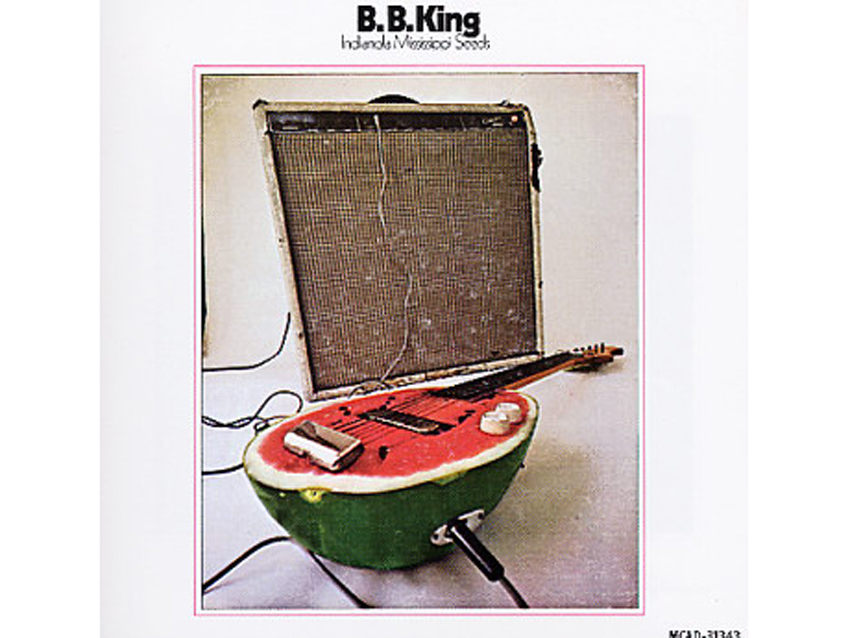
BB King - Indianola Mississippi Seeds (1970)
“BB was unbelievably wonderful, just as nice and friendly as he could possibly be. And charming – just charming, charming, charming. He’s BB King. He hasn’t changed at all.
“I was in such awe of him. I was just trying to keep up and stay out of the way. When he would start a song, he’d sit down – he was sitting on a chair with his guitar – and he’d hit a little bit of chord and say, ‘Nobody loved me but my mother.’ Another chord: ‘And she could be jivin’ too.’ You know exactly what to do. By virtue of the fact that he starts, you just jump in.”
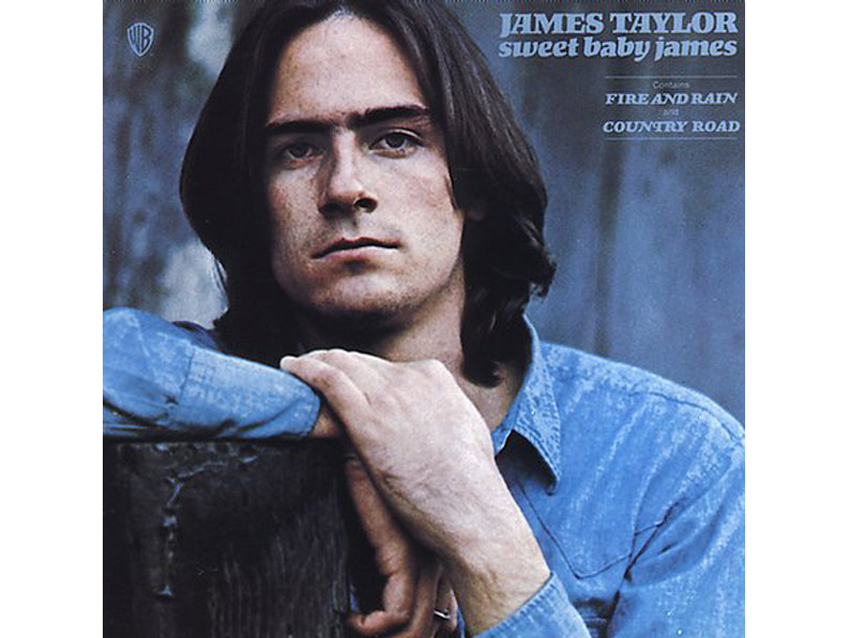
James Taylor - Sweet Baby James (1970)
“I was playing with John Stewart at the time. John was a dear friend who passed away a couple of years ago. In his band, there was a wonderful fiddle named Chris Darrow, and he was a friend of Peter Asher’s. Peter had come from the UK, having just left Apple Records, and he brought James Taylor with him. He was looking for musicians to do an album for Warner Brothers, which was Sweet Baby James. He needed a drummer, and Chris said, ‘Oh, you should come see the guy who's playing with John.’ Peter came to our rehearsal and hired me on the spot.
“I went to a rehearsal at Peter’s house. They had a piano in the living room that he had just moved into – there was hardly any other furniture. James sat in a chair, and Carole King was at the piano. I set up my drums, and we rehearsed some of the songs. I think Danny Kortchmar was there, too, playing acoustic guitar or electric, really, really softly. We rehearsed a little bit and then went into Sunset Sound and made the record. It was wonderful.
“One of the things that happened in the rehearsals was that, because Peter lived in this residential area down by Larchmont, a very Spanish house, I really couldn’t play with sticks. There was no amplification, no monitors, so I did the four rehearsals with brushes, playing them like sticks. Fire And Rain was one of the songs that we rehearsed before we went into the studio.
“I fully intended to try to use sticks on some of the songs, which I did, but when it came to Fire And Rain – it might have been Peter, it might have been James, I’m not sure – but they said, 'You know what? Maybe… what did you play at the rehearsal?’ I said, ‘I was playing on brushes.’ And they said, ‘Try that.’ And that’s why I used. That’s why it sounds the way it does.
“The sessions were great and very quick. I think we cut the album within a week, maybe only three or four days. It was Bob West on bass, Carole and Danny and myself and James. And I think Red Rhodes played some steel guitar on it. That was pretty much the core of it. Next thing I knew, the record was about to come out and Peter asked me to go on tour with James. It was a great experience.”
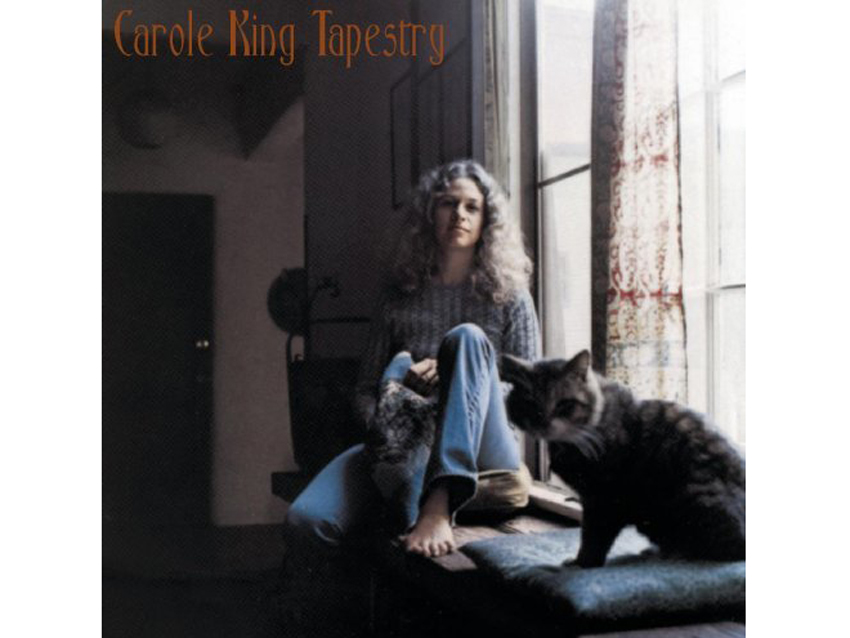
Carole King - Tapestry (1971)
“It came about because of my involvement with Carole and my playing on James’s record. I think I might have played on four five cuts on Tapestry, maybe half of it, and the other half was by what turned out to be Carole’s band, which was actually Danny’s band, Jo Mama. We split up the duties. We did it at A&M Studios in Studio D, with Lou Adler producing.
“Working with Carole is very easy. She’s a master and she can articulate exactly what she wants – because she knows what she wants. It happened very quickly. The songs I got to play on were a pleasure.
“I had a feeling that something was going on. I guess we would just call it the family, with the group of people that we were all circulating with. There was Peter, Lou Adler, multiple record labels – we were playing on lots of things. The Eagles were just starting to happen. Jackson Browne was starting – during this time, we cut the first Jackson Browne record. There was so much going on around at the same time.
“I don’t think anyone knew that Tapestry was going to be the record that it was. It just kept going and going and going. With Sweet Baby James and Tapestry, Sweet Baby James was from a male point of view, and Tapestry was from a female point of view. They touched so many people and gave them a drink for a thirst that was not being clenched. When those two records came out, they drank it up."
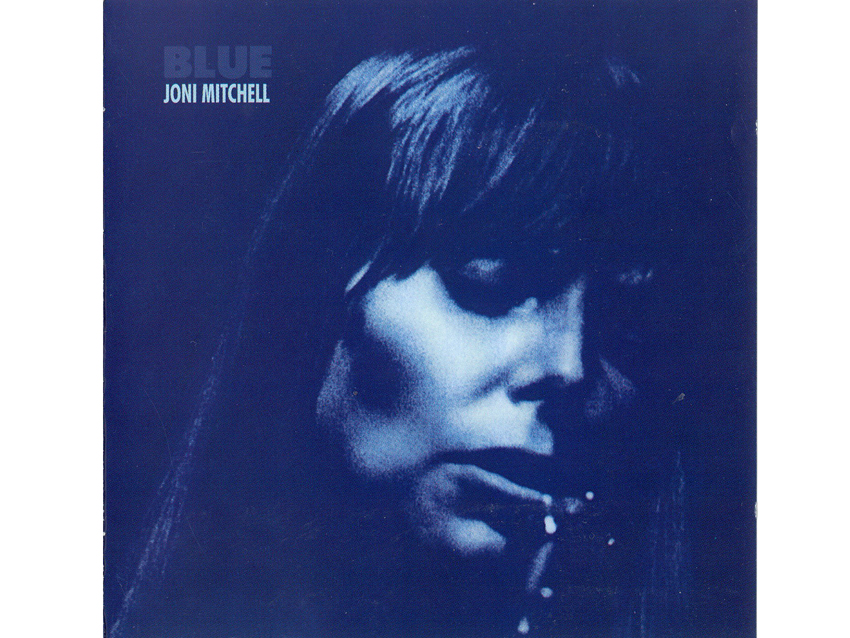
Joni Mitchell - Blue (1971)
“Joni and I always got along well. She always knew exactly what she wanted. She would just express it differently. She would express it in a way that was more artistic. It’s like she would talk about it in terms of colors and feelings, which I totally understood, so it was great being in the studio with her and her amazing engineer, Henry Lewy.
“James was on those sessions. He and I have done so much playing together in the studio and on the road. Joni did a lot of that stuff on her own. I don’t think I played drums on anything – maybe I did on one or two cuts. It was mostly percussion.
“I thought it was incredibly refreshing. Joni is an artist in every facet of her life. The art of the dance was as important to her as the outcome."
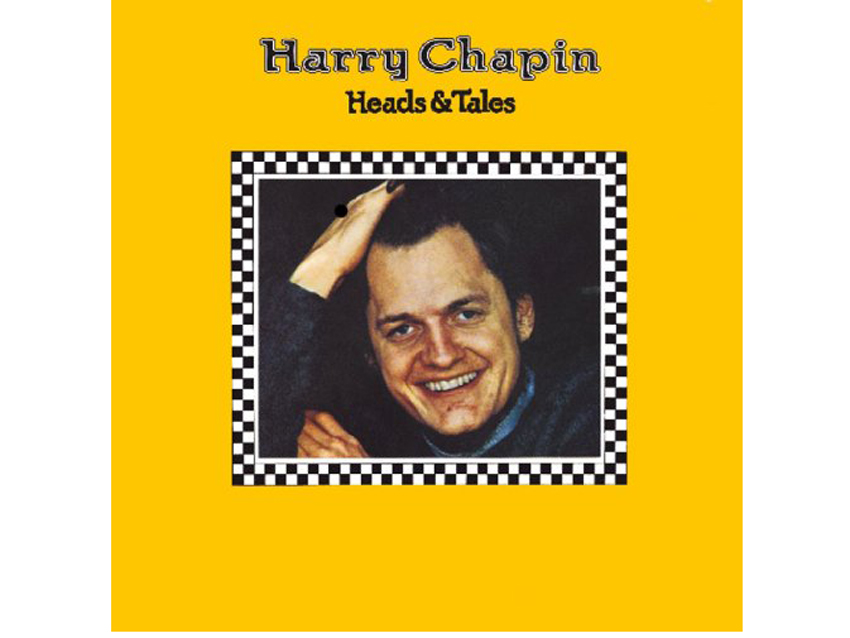
Harry Chapin - Heads & Tales (1972)
“He was great. Funny, smart, so talented and humble – unbelievably humble. Very animated and alive. I got to work with him because of Jac Holzman, who was running Elektra Records at the time.
“I’m not so sure that I played on Taxi – that was the big song on the record. The thing about Harry was, he told these amazing stories. They were stories set to music, which I thought was really unique. He directed everything, absolutely.”
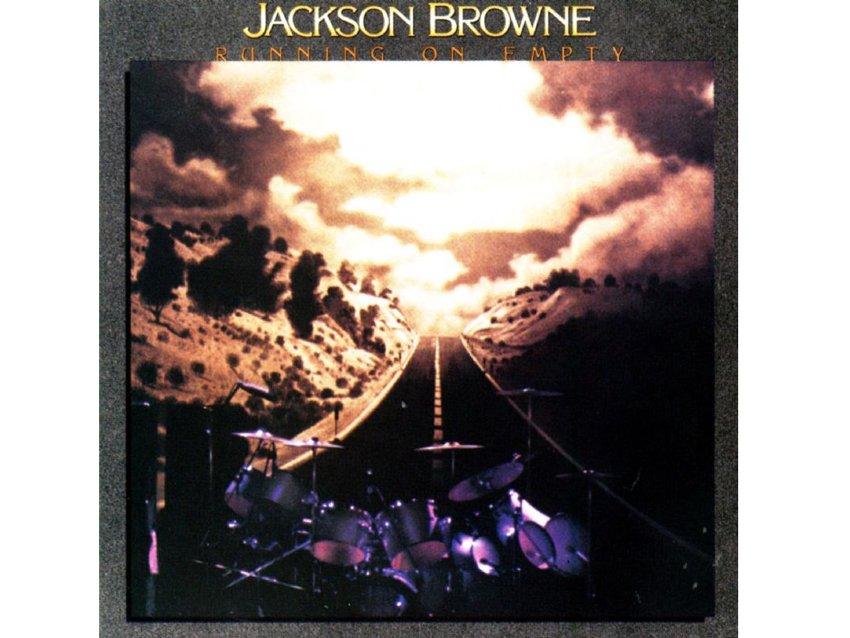
Jackson Browne - Running On Empty (1977)
“This was a real joy. What a whirlwind it was. We were a traveling carnival – that’s pretty much what it was. Greg Ladanyi recorded all the shows. There was a multi-track machine that traveled with us, and Greg was in charge of that. We recorded at various different hotels.
“At one hotel – I don’t know whether it was in Missouri or Ohio; there are some photos of it in the Running On Empty picture book – we set up a studio in two adjoining rooms and recorded some things. We also recorded a bit on the bus. It was kind of tour/record as much as you could in I don’t know how long it took. It might have taken a month, two months, but it was pretty spectacular.
“We finished the tour and Jackson was starting to go through all the tapes. He credits me with saying, ‘You know, Jackson, since we recorded all of these new songs live on stage, why don’t you make this a live Jackson Browne record with new songs?’ And he went, ‘Fuck!’ I guess once he looked at the list and listened to the new songs, he decided that that was a good idea. I think that’s what makes it a special record.”
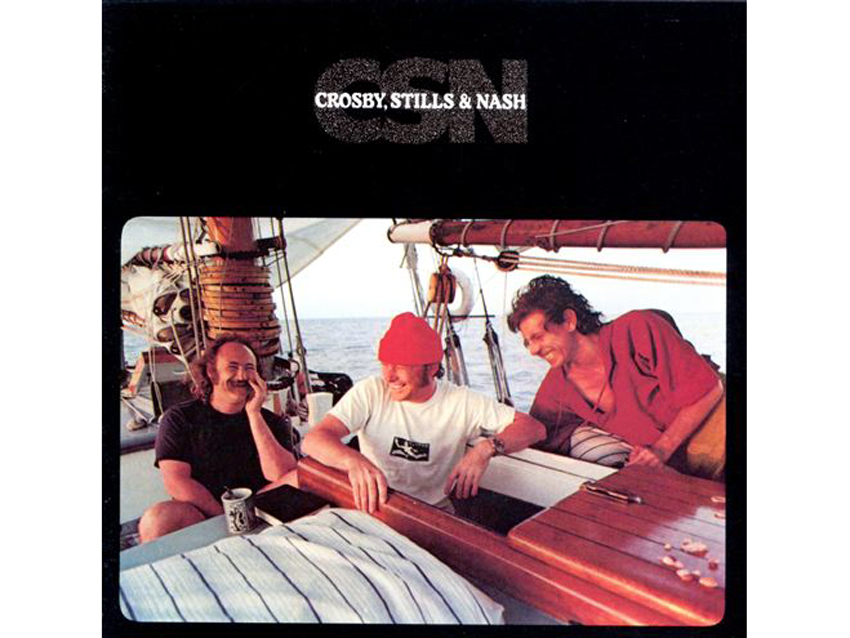
Crosby, Stills & Nash - CSN (1977)
“I worked with Stephen first. I was in Stephen’s band after Manassas broke up, and because of my affiliation with him, I was brought in to play on the CSNY tour. We were going to record an album after that tour – we started it, but it didn’t happen.
“Then I went to work mostly for David and Graham. I did Wind On The Water and Crosby and Nash. It was a ton of fun because we had a band called The Jitters. That was Danny and myself, Tim Drummond, David Lindley and Craig Doerge.
“First of all, I have to say that I love Graham and David with all my heart, and Stephen and Neil have been nothing but kind and generous to me over the years. Every time I have an opportunity to be around them or work with them, it’s always a pleasure. A few years ago, with my son Nathaniel, I had the opportunity to produce a Graham Nash solo album and a Crosby/Nash album. It’s always, always been a pleasure working with them.
“They stay out of the way. They let the magic happen. They always have and they always will. That’s how they work. They call people into the studio that they know will contribute and they let it happen. The typical way that they’ll work in the studio is, David will sit down with that wonderful smile on his face, he'll put his acoustic guitar on and go, ‘Listen to this.’ He’ll play a song and… you start to think about what you could do that would fit. Not much is said at all.
“I might just start like playing a ride cymbal really lightly in the tempo that he was playing the song in. A piano will start. They let the magic happen. They always have, and that’s why they’re so special.”
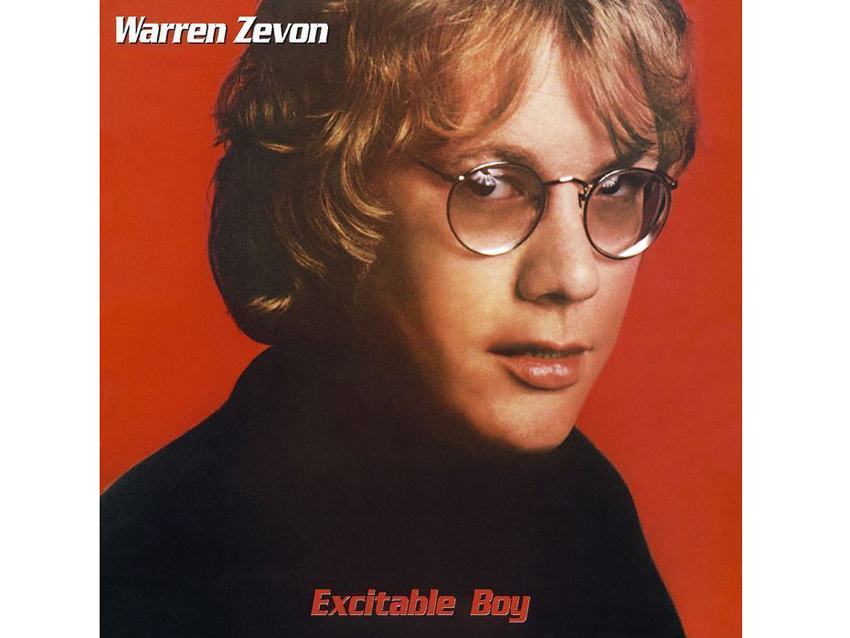
Warren Zevon - Excitable Boy (1978)
“Danny, Waddy, Leland and I were asked to go to the Rock and Roll Fantasy Camp in Vegas. We all did master classes and a performance. Doing that and rehearsing for the performance, we realized that we picked songs we either wrote, co-wrote, produced or collectively played on.
“It was an amazing setlist: Werewolves Of London and another Warren Zevon song, Johnny Strikes Up The Band; All She Wants to Do Is Dance by Don Henley; we did a couple of James Taylor songs that Danny co-wrote, Machine Gun Kelly and Honey, Don’t Leave LA.
“What we realized is that we’re the ultimate cover band: We actually played on these songs, and now we’re covering them. And so we decided that this is going to be something we want to do in the future. We actually put together a proposal, and I’ve been talking to some agencies about it. We’re going to call it The Sides.
“In doing this, I went back and looked at Excitable Boy. I forgot that I had played on about four songs on the record. I was great – Warren was fantastic, and Jackson and Waddy were producing it together. Because Waddy and Warren were friends from playing with the Everly Brothers, they had known each other forever. Waddy brought Warren in, introduced him to Jackson, and the whole thing started.
“It’s a brilliant record, absolutely fantastic. It’s a pleasure to be a part of it because Waddy is a great producer, Jackson is a great producer, and Warren just had these amazing songs. Every bit of that was tons of fun.”
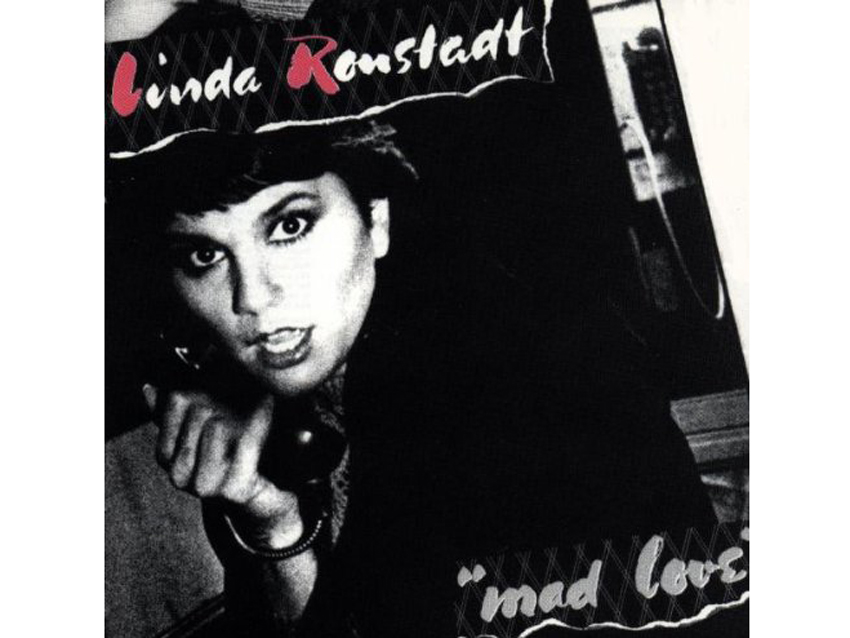
Linda Ronstadt - Mad Love (1980)
“It was definitely a different direction. We really tried to keep our ear to the sound post and make sure that we knew what was going on around us. Elvis Costello’s first record was a big influence. It was a new sound, and I remember going to see him and the Attractions. We all went to see them at Hollywood High School – Peter, Danny, Linda and me. I thought, ‘How great? They’re playing at Hollywood High School auditorium. Can you believe that?’
“And they were fantastic. I’m actually feeling differently about it now than I did then. Now I see it in a different light, but at that point in time, it was like, ‘OK, well, it’s time to embrace something new. It’s time to shift gears.’ We were pushing the envelope a little bit. I think everyone had to grow in that area. I don’t remember whether it was Linda or Peter who was really pushing it.
“I don’t remember there being any tension, but it was a little bit of uncharted waters. Some of the song choices, I went, ‘Hmm, OK. Well, I guess so.’ That was not my role to play, but I remember doing it. It was a little bit of a stretch. I felt in some ways we were trying to fit a square peg into a round hole. We thought we did a good job on it because a lot of people really loved the record.”
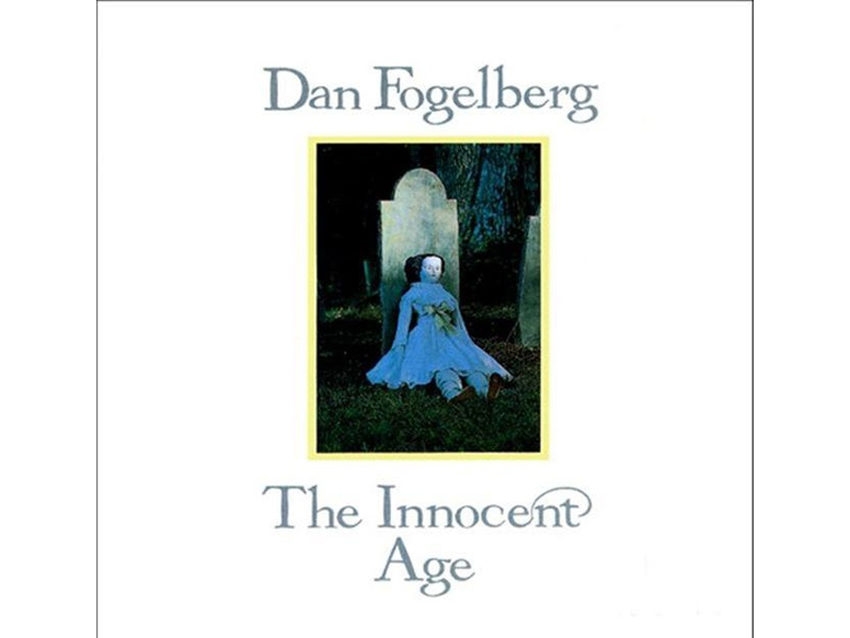
Dan Fogelberg - The Innocent Age (1981)
“Oh, gosh, this is a real soft spot for me. I miss him terribly. He was a very, very close friend. I first met Dan during the Souvenirs sessions that Joe Walsh was producing. Dan and I really hit it off, and that started a long relationship of recording and playing live together.
“I believe I worked on three more records with Dan before The Innocent Age. That would be Captured Angel in ’75, Netherlands in ‘77 and Phoenix in 1980. The Innocent Age, I believe, was recorded at Graham Nash's studio at Crossroads Of The World in Hollywood, California. It was a double album, as well I kind of remember the record company being a little uneasy about it being a two- record set, but in the end it was incredibly successful.
“Dan was a huge, huge, huge talent at making his records, another person who knew exactly what he wanted and could articulate it in the most wonderful way. He was a visionary and a complete composer. He could see the finished product. He could look at the pound of clay and see the sculpture.”
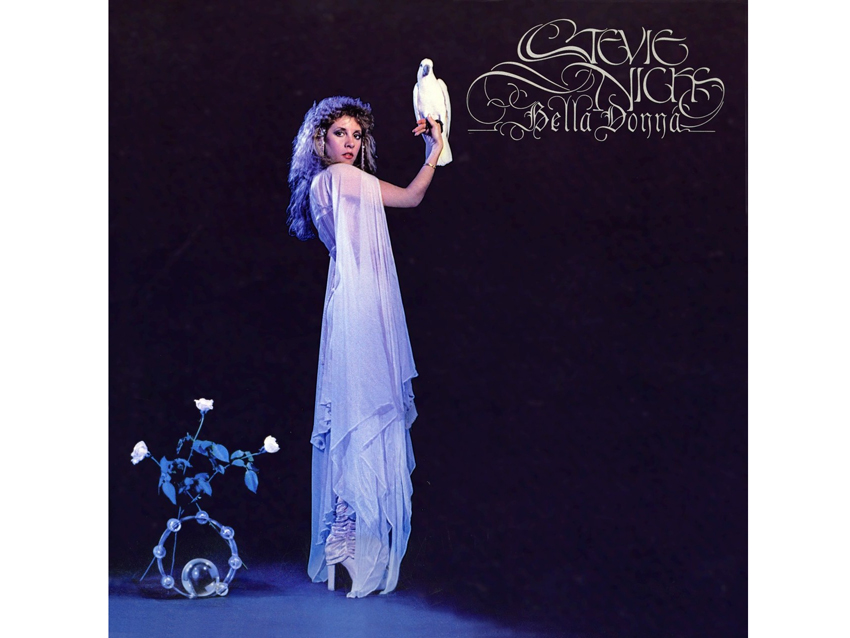
Stevie Nicks - Bella Donna (1981)
“It was fantastic. Once again, enter a greater producer, Jimmy Iovine. He’s always been unbelievably great and wonderful to me. There was no doubt that he would be successful. He’s a giant. I learned a lot about producing by being around Jimmy Iovine.
“One of the things he would do that I’ll never forget was, we would all be in the studio, and we’d be on headphones just getting ready to do something. Jimmy would come out of the control room and sit down either next to me or where he could see everyone. He’d put on a set of headphones and say, ‘OK, let’s run the song.’ We would play the song down, and while we were doing that he’d get a microphone and say to the engineer, ‘Turn the drums up. Turn the bass down. Stevie’s vocal up more. More piano. No, take the river off the piano. OK, good, a little more kick drum – great. A little overhead.” He would mix our cue mixes from the floor.
“In other words, he put himself in the place the musicians are going to be, not on the other side of the glass in the control room. Because he knew that it was only going to take a couple of passes, and he didn’t want to miss it, he wanted it to be right. So he was out there with us, making sure that everything was working, and once it sounded good he would go around to everybody: ‘Is everybody happy? Do you need anything? Are you OK? Are you ready? You ready? Ready? OK, Stevie, bring Stevie in.’ Stevie would come in. Roll tape, boom – one or two takes and it would be done.
“That’s the way he worked all the time, and it was fantastic. He was just a visionary. He knew that the songs were there and that he brought this great convergence of musicians. He had Davey Johnstone, Waddy, Benmont Tench and Roy Bittan from the E Street Band, Benmont Tench from The Heartbreakers, me and Bob Glaub. Those were all Jimmy’s calls.
“I’ve worked with Stevie on and off over the years. I was a musical director for one tour. I love her to death. She is a true friend and a giant.”
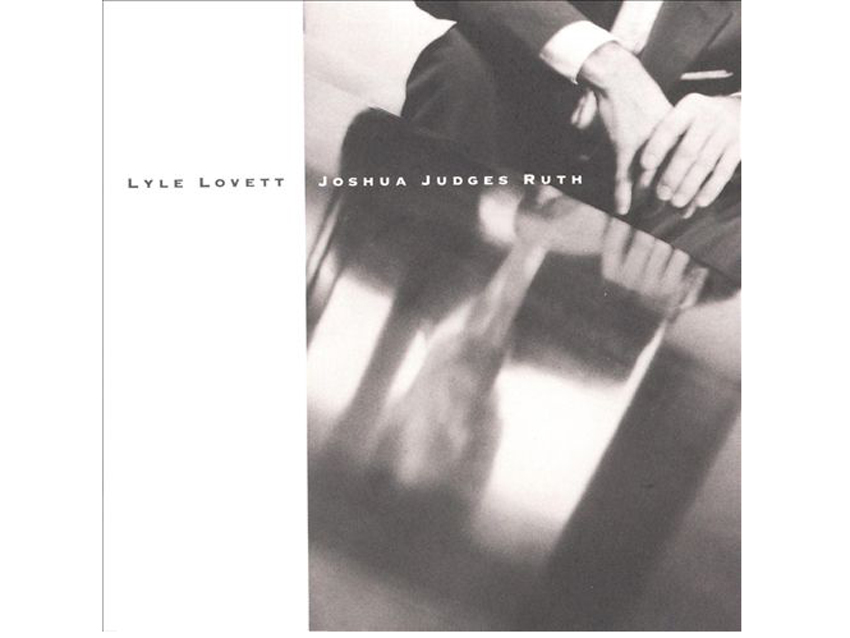
Lyle Lovett - Joshua Judges Ruth (1992)
“The first time I worked with Lyle Lovett was on the Grateful Dead tribute CD. The song was Friend Of The Devil. I had been a fan of Lyle's for many years and was grateful to have the opportunity to work with him. A little while later, he called me to come back and play on an album he was doing called Joshua Judges Ruth.
“Recording with Lyle has always been a pleasure. He likes rhythm parts to be unique, so I had to come up with things that were a little bit off the beaten path. I love this process – it stretches my imagination. Some of my favorite Lyle Lovett songs are on this album are I've Been To Memphis, Church, North Dakota and She's Already Made Up Her Mind. This album was a bit of a departure from the jazz and blues roots of Lyle’s previous records. There's more of a sparse approach to the arrangements.
"I've been playing live with Lyle for quite some time now. Sometimes it's the Large Band with a four-piece horn section and background singers; other times it's the acoustic group with Keith Sewell, Luke Bulla, John Hagan, Lyle and myself. No matter what the configuration is, it's always great.
“Lyle has been such a good friend to me and my family over all these years. My son Nathaniel engineers and co-produces Lyle's records with him. One summer I was going to miss my daughter Elsie's birthday because I was on tour. Lyle invited Elsie, who is a singer songwriter, to come meet us on tour for her birthday, and he asked her to sing a couple of her songs in our set. That’s a perfect example of how kind and generous he is. I'm proud to call Lyle a dear friend.”
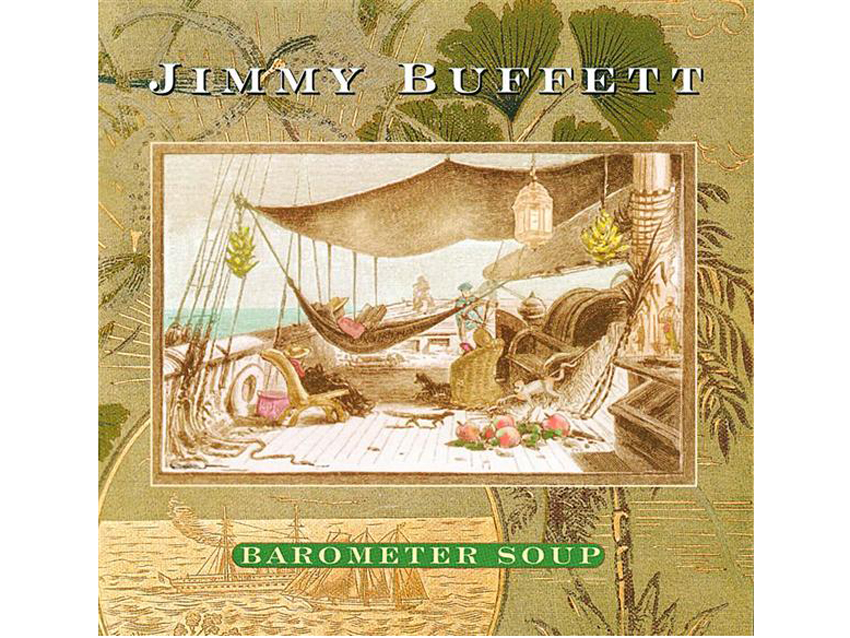
Jimmy Buffett - Barometer Soup (1995)
“This is probably my favorite album. At the time, Jimmy was writing his first book, and he had a deadline that he had to make, so he called me into actually produce the writing for the album. Along with the great keyboard player and dear friend Jay Oliver; Peter Mayer, Jimmy’s guitar player; and Roger Guth, Jimmy’s drummer, I went to Key West to this place called The Fish Camp, a little complex that was Jimmy’s compound.
“Jimmy’s concept for Barometer Soup was to be inspired by Key West and write songs in the way that Mark Twain and Ernest Hemingway wrote about the area. We tried to create some musical movies inspired by Key West and its history.
“We would spend the morning drinking coffee and reading, and then Jay would go to the piano and start coming up with something; somebody else would have an idea and we’d collaborate. We would write the music, with the four of us keeping a rough sketch of lyrics.
“Jimmy would come in once or twice a week, and we would give him the takes of the tough tracks that we put together, just MIDI stuff and a guitar. We might only have a line for a chorus, a beginning of a chorus, and maybe a brief sketch of what a verse might be. Jimmy would take them, and then he’d go away and finish them up. We would just push it out on the ocean, and he would go jump on it.
“That’s my favorite record because it’s very influenced by Key West, Hemingway and Mark Twain. We wrote about one of the restaurants down there, Blue Heaven. But we just let the experience of where we were with this basic idea of Mark Twain and Hemingway inform what we were coming up with. So it’s my favorite record of Jimmy that I produced. I’m really, really proud of it."

Joe is a freelance journalist who has, over the past few decades, interviewed hundreds of guitarists for Guitar World, Guitar Player, MusicRadar and Classic Rock. He is also a former editor of Guitar World, contributing writer for Guitar Aficionado and VP of A&R for Island Records. He’s an enthusiastic guitarist, but he’s nowhere near the likes of the people he interviews. Surprisingly, his skills are more suited to the drums. If you need a drummer for your Beatles tribute band, look him up.
“Tonight is for Clem and it’s for friendship. An amazing man and a friend of the lads”: Sex Pistols dedicate Sydney show to Clem Burke
“Almost a lifetime ago, a few Burnage lads got together and created something special. Something that time can’t out date”: Original Oasis drummer Tony McCarroll pens a wistful message out to his old bandmates
“Tonight is for Clem and it’s for friendship. An amazing man and a friend of the lads”: Sex Pistols dedicate Sydney show to Clem Burke
“Almost a lifetime ago, a few Burnage lads got together and created something special. Something that time can’t out date”: Original Oasis drummer Tony McCarroll pens a wistful message out to his old bandmates









